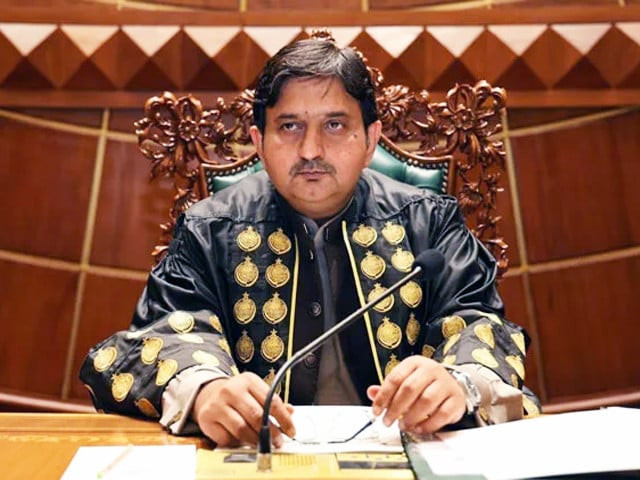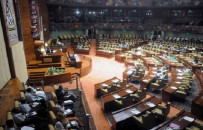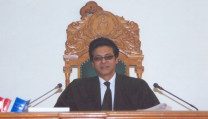'Legislature's role is to legislate, not protest'
Punjab Assembly speaker defends disqualification reference against 26 opposition MPAs over 'unparliamentry conduct'

Punjab Assembly Speaker Malik Muhammad Ahmad Khan emphasised on Monday that the legislature’s primary function is to legislate, not protest, defending his move to file disqualification references against 26 opposition lawmakers.
Addressing a press conference on Monday, he referred to recent disruptions in Assembly, stating that the opposition had turned the house into a platform for protests rather than constructive debate.
He said that while he is not in favour of expelling any member, it is within the constitutional right of petitioners to have their applications decided within 30 days, as per Articles 62 and 63 of the Constitution of Pakistan.
Articles 62 and 63 of the Constitution refer to required qualifications for members of assembly as well as grounds for disqualification.
Earlier, Khan had filed disqualification references with the ECP against 26 opposition MPAs from the Sunni Ittehad Council (SIC) for "disparaging the sanctity of the house". Speaking to the media, Khan confirmed the development, stating that those who violate the house's sanctity would face action.
Read: Punjab speaker moves to disqualify 26 MPAs
He condemned the use of abusive language and violence in the assembly, describing it as an anti-democratic attitude. He also referenced Article 63 of the Constitution, which outlines disqualification criteria, and emphasised that MPs take an oath to protect the Constitution.
Khan vowed to continue fighting for the Constitution’s protection, stating that maintaining order in the House is his duty. He added that he had shown patience for over a year and needed to justify his role as speaker.
Khan stressed that if these applications are not resolved within the stipulated period, they will automatically be forwarded to the Election Commission of Pakistan (ECP).
"Legislature is meant for legislation, not protest," he said, criticising opposition members for continuous disruptions in the Assembly. He added that if there is disorder during the order of the day, proceedings will continue under the law.
The speaker further addressed claims from the Leader of the Opposition asserting that the Speaker lacks the authority to send a reference.
He referred to the Panama Papers case judgment by Justice Asif Saeed Khosa, which establishes that if members violate their oath, the Speaker is bound to either make a decision or refer the matter to the ECP.
Khan reiterated that "if a reference is received under Article 63(2) of the Constitution, it must be decided accordingly".
He expressed hope for future dialogue between the government and opposition to improve the atmosphere in the Assembly. He reaffirmed his commitment to upholding the sanctity of the house and ensuring that legislative processes are respected.






















COMMENTS
Comments are moderated and generally will be posted if they are on-topic and not abusive.
For more information, please see our Comments FAQ